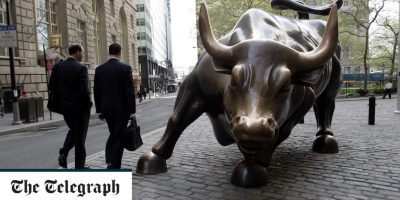This is a four-part series looking at how Covid-19 could affect your retirement plans, for those with 20 or 10 years still to go, those about to retire and those who have just retired.
Retirement can take years of planning and everyone will have their own vision of how they want to spend it, be it slowing life down a gear, delving into passions or adventuring abroad. But no one will have imagined a global pandemic for their first years of retirement.
Those who waved goodbye to their day job pre-Covid-19 have been spared from the anxiety of the jobs massacre and have not had to learn the ins and outs of furlough.
But nobody has come out of the pandemic entirely unscathed. Millions of pensions took a dive in tandem with the stock market this March.
Tom O’Brien of financial planner Brewin Dolphin said there have been few periods in recent decades of such uncertainty for people who have just retired.
The immediate impact on many people’s pension funds has been two-fold, he said. First, global markets had steep falls in March and April. The FTSE 100, an index of the largest 100 British companies, fell by more than one-third from peak to trough.
Second, many companies began to cut, or axe altogether, their dividends in a bid to cut costs. Both of these have affected the plans of people who had recently retired in a “serious way”, Mr O’Brien said.
The biggest fallout for the newly retired was the worry of watching their retirement pots fall dramatically – in some cases, representing years of planned income. That concern may have gone away to some extent as markets have largely bounced back but there is still a great degree of uncertainty, he said.
Confidence levels for men and women about retirement
Advisers have been urging pensioners not to withdraw large amounts of cash from their investment pots as they risked locking in the steep losses made by markets at the beginning of the year.
Dipping into a pension as markets fall means more shares have to be sold to make up the amount being taken out. This means fewer shares are owned when markets rise, reducing the size of a pot permanently.
Whatever your position, it is important to never make knee-jerk decisions when it comes to your pension.
History has shown that keeping hold of good investments in touch times has been the right move and stocks and shares have outperformed cash holdings over the long term, Mr O’Brien said.
He said: “You have to remember that if and when you decide to sell an investment that has lost value, that loss then becomes real – it is crystallised and is no longer just on paper.”
Steven Cameron, of pension provider Aegon, said the most pressing priority is to review the amount of income that you take each year.
The amount you spend this year is unlikely to be what it was this time last year, as a result of the ongoing restrictions on events, international travel and socialising. Overall retiree spending is down 5pc compared to last year, according to research from consumer site Which?.
Ask Kate a question | The Telegraph’s pensions doctor
As a general rule, if your fund has fallen 20pc, ideally you would reduce the income you are taking by 20pc so you are not depleting your fund, he said.
Many will hold some of their drawdown investment in cash and when stock markets are down, it is best to draw your income from this part in the hope that the stock investments will bounce back. Likewise, it is best to avoid taking any more than you need in times of recession by dipping into cash savings where possible.
Those in gold-plated defined benefit pension schemes will have been largely unaffected by the pandemic, as their income is guaranteed, according to Mr Cameron.
Reader Service: Try our Pension Advice Service today and get a free recommendation on whether we can improve your pensions. Capital at risk.
Similarly, anyone who bought an annuity will also see no change and will continue to receive the agreed income.
























Comments